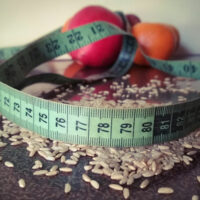5 effective ways to relieve constipation

Constipation is a common health condition that affects the function of bowel movements. One experiences trouble passing stools. Stools can be hard, dry, lumpy, and infrequent. If you experience any three bowel movements within seven days, a healthcare provider could diagnose you with constipation. The good news is there are various ways to manage the condition and its symptoms. Here are some effective ways that help induce bowel movement at the earliest:
Treatment options – LINZESS® or MOVANTIK®
Sometimes doctors may advise you to take antibiotics to relieve chronic constipation. LINZESS® (linaclotide) works by raising the level of chloride and water in the intestines. This helps soften stools and stimulate bowel movement. LINZESS® is used to treat severe constipation and IBS. MOVANTIK® (naloxegol) also that helps relieve constipation caused by opioids (pain relievers). It treats constipation without reducing the pain-relieving effects of the opioid. People experiencing occasional constipation can try the Laxative Caplets from Phillips. Its formula works with the body’s natural process to provide relief without cramping. It is suggested for adults and children 12 years and older. The prescription must be introduced to the body with a full glass of liquid for best results.
Foods to eat
- Drink enough water
Dehydration is a common cause of constipation, so make sure you keep yourself hydrated. Drink two to four extra glasses of water a day. Avoid carbonated drinks as they can worsen the symptoms of irritable bowel syndrome (IBS). In some cases, sparkling water may also be effective at relieving constipation. - Consume fiber
Fibrous foods help lower cholesterol and blood glucose levels. It may likewise accelerate the transit of stool through the digestive system. Fiber, in general, falls into two categories. Insoluble fiber present in wheat bran, vegetables, and whole grains helps move stools quickly and swiftly. The soluble fiber in oat bran, barley, nuts, seeds, beans, lentils, peas, and selected fruits and vegetables absorb more water and form a gel-like paste. This helps soften stools and improve their consistency. Consume a mix of soluble and insoluble fiber.
Foods to avoid
If you are constipated, avoid gluten-rich foods like wheat, barley, rye, spelt, kamut, and triticale. Processed grains like white bread, white rice, and white pasta could also be linked to constipation. For some people, dairy products could result in hard stools. Limit or avoid red meat, fried, and fast foods as it contains little fiber and excessive amounts of fats.
Exercise regularly
Being active may assist with keeping your bowel movements standard. People who don’t take an interest in physical activities might be bound to be constipated frequently. Short or brief strolls after every meal can help keep your digestive system healthy.
Try to poop in a squat position
Bring a little footstool into your washroom the next time you need to poop. Place your feet on a stool, so your body is basically in a squatting position rather than in a seated position. This can assist you with passing stool without stressing your organs.








